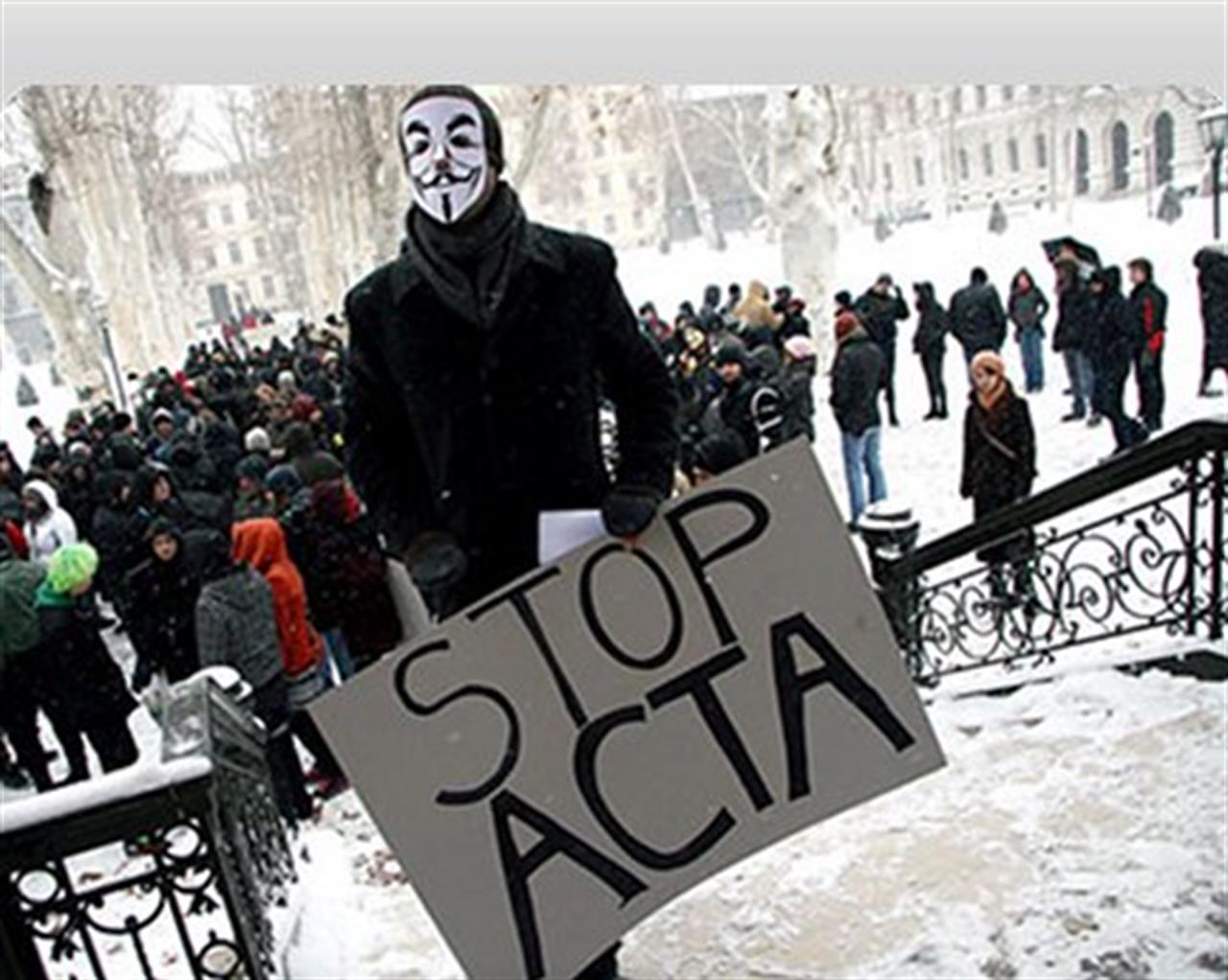Trade agreement spikes protests
The proposed anti-counterfeiting trade agreement has fired up protests worldwide. This is why

On February 11 protests against the Anti-Counterfeiting Trade Agreement signed in Tokyo last month were held in a number of countries in Europe and all over the world. Several hundred protesters gathered in Zagreb, in front of Croatian Foreign Ministry, to express their discontent with the ACTA Agreement.
The protesters warned that, were ACTA to be ratified, internet providers will be obliged to monitor all activities of their users in order to record and discover all copyright violations and infringements. Trademark owners and enforcement authorities would receive widespread permission to investigate suspect individuals, including authority to infringe their privacy. Besides internet, the Agreement largely restricts the actions in other areas – patents, production of generic medicines and software.
“If this Agreement is ratified, in addition to the damage it will cause to international trade and innovation, it will cause huge negative consequences on freedom of speech, accessibility of cultural goods and privacy”, ACTA opponents say, adding that the agreement “doesn’t satisfy EU standards on protection and promotion of universality, integrity and openness of internet.
Although the Government of Croatia noted that it was yet to discuss the Agreement, Croatian President Ivo Josipovic already expressed his public support for ACTA. In reaction, the Anonymous Croatia hacker group took down, for two days in a row, his official website Predsjednik.hr, and protesters treated him to chants “Josipovic, shame on you” and a banner that said “Ivo, we wouldn’t download your music anyway”.
Joško Klisovic from the Foreign Ministry met with the protesters and reaffirmed their right to peaceful gathering, noting that the Ministry was prepared to sit and talk to them. Klisovic also noted that the Agreement has not been ratified by the European Parliament yet, and that the Croatian Government has not adopted a position on ACTA. Protesters decided that they will create a working group that will meet with the Ministry in due time.
Similar protests in Croatia were also held in Osijek, Pula, Rijeka and Split.
Under the auspices of the Anti-ACTA campaign, the Pirates’ Party of Serbia organized a public debate on the topic Stop ACTA last Thursday, February 9, at the Ozone Gallery in Belgrade. The debate, chaired by Aleksandar Blagojevic from the Pirates’ Party, IT rights lawyer Žarko Pticek, and Ognjen Uzelac, specialist in copyrights and associated rights in music, concluded that the ratification of the ACTA agreement would threaten protection of personal data, increase the control over social networks and content distribution channels on the internet, as well as introduce restrictive measures in pharmaceutical industry and agronomy.
Žarko Pticek noted that the agreement dedicates a whole chapter to protection of intellectual property in digital space and threatens directly the Law on protection of personal data. 1
“Every country will order its adequate body to impose an obligation on service providers to discover and report all violations and assist the rights holders in getting the information that would help identified those who allegedly committed intellectual property rights infringements. It practically means that providers, to avoid fines and prison sentences, pre-empt to allow constant surveillance of all of our electronic traffic, so that they could submit the collected information to whose who intend to file charges against us on alleged intellectual property infringements”, Pticek said. Carry on reading.
Cosa fa VITA?
Da 30 anni VITA è la testata di riferimento dell’innovazione sociale, dell’attivismo civico e del Terzo settore. Siamo un’impresa sociale senza scopo di lucro: raccontiamo storie, promuoviamo campagne, interpelliamo le imprese, la politica e le istituzioni per promuovere i valori dell’interesse generale e del bene comune. Se riusciamo a farlo è grazie a chi decide di sostenerci.
